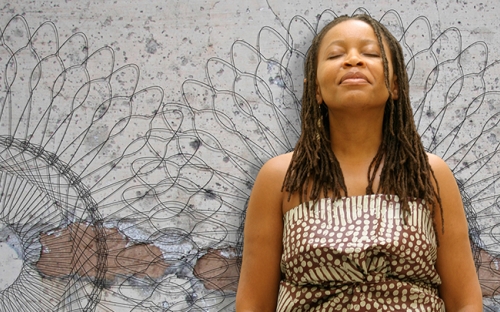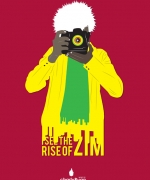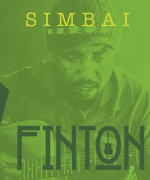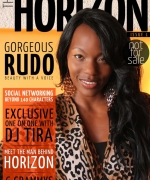Alice in the Wonderland of Photography
“There is a beauty in decay,” she says. Perhaps it has something to do with the way one sees but I am not so sure.
“My attraction is two- fold,” she tells me. “I am drawn by the beauty but I am also interested in the aspect of mourning what used to be,” she adds. Now she has me interested. She pauses and doesn’t seem to want to go into details. But soon she lets out the secret.
“Well, I am actually working on a series on urban decay, the decay of the industrial sites.” Ah. I get it. Well, sort of. Alice is not afraid of tackling difficult subjects. I remember this from the first time I encountered her work about ten years ago. At the time she was participating in an exhibition about street children called “The Streets where I live,” about ten years ago. The exhibition included paintings and photographs by street children as well as established artists about life on the streets. That’s not the only exhibition Alice has been involved in. She has taken part in various others in Zimbabwe and her work has travelled to Australia, the United States, England, Cuba, Botswana, Malawi, South Afrika, France, Sudan, Tanzania, Zambia and other places she has forgotten about, she tells me. Impressive, I think. I am interested to know how all this began.
“Well, I am fortunate to have received a lot of nurturing. I was born in Ashira, in Tanzania, to Zimbabwean parents,” she says. “I began my early life right on the slopes of Mount Kilimanjaro. I can still remember it to this day, even though we only lived there until I was five. The mountain disappeared every day at four o’clock in the afternoon,” she says laughing. “I imagined it went to its mother and came back the next day.” We both laugh.
At the age of two, Alice’s father bought her a set of non-toxic water colours. “I knew from that age what I was going to become,” she says. Her father went on to introduce her to the wonders of photography when she was six.
“I still remember him lying on the ground playing with our adopted stray cat, Susan, by the rockery. I still have the photo – blurry as anything,” The camera she used to take that picture was a Pentax, a manual one. “My father said to me, ‘just point and shoot’. I did. From then on I fell in love with the camera.”
She rediscovered the camera when she was 17 years old. By then Alice’s family had moved to Zimbabwe, where she did her schooling up to O level before moving once again. This time, it was to Australia.
“I went to St Clare’s College in ACT, Canberra, and I picked up a camera during a photography lesson.”
A photography lesson at school? Alice nods. “That’s right. You could pick any combination of lessons you wanted to take as long as you had the compulsory ones covered. As part of my combination I chose photography,” she says.
“When I was at school in Harare I hated it. But when I got to Australia, school just changed for me. The teachers at my school had a lot of passion for the pupils. They cared and that made the world of difference,” Alice says. After high school, she did a BA in Fine Art before going on to obtain her Masters at the Australian National University, Institute of the Arts.
“I majored in photography and animation,” she says. “When I was doing my first degree that’s when Photoshop came out. They introduced it at my university and since then I’ve been hooked.” It was during that time that she also developed a love for the dark room. “The quietness in the environment and the quiet I experience within myself is what I love. Creativity just germinates in different ways. You are part artist, part scientist. It’s just a beautiful combination.” Unfortunately, Alice doesn’t have a dark room of her own. “Perhaps one day,” she says. That doesn’t stop her from pursuing her love of photography though. She can cover a wide scope in terms of subject matter but tends to enjoy portraits.
“I am a portrait photographer with a touch of surrealism in my work. I love to do portraits of Afrikan women. I work a lot with fabric and skin tone, skin texture. I find those so dramatic,” she says. These days, she uses a Canon EOS 10D digital. “It’s light, portable and it has become an extension of my hand. I am often with it,” she adds. She has come a long way from that girl with a Pentax manual. I’m guessing a Pentax manual wouldn’t be ideal for pursuing the artistic side of photography, which Alice does.
What keeps her going, I ask.
“I believe that all creativity is spiritual,” she answers. “I have a Nigerian acquaintance, a fellow artist, who used to say that when you pursue your art, you are imitating the creator. I find that I need to tap into the spiritual side of things in order to produce good work. We are spiritual beings. God is spirit. He is creative,” she goes on. So, does that mean she never suffers from artist’s block?
She shakes her head. “I have had artist block, like many artists. Often blocks come when I am not in the right place with God. The moment I get that sorted out, my work just flows.
Speaking of work flow, we talk about her most recent work. “My last exhibition was at MAD (Multifaceted Arts Domain) earlier this year. I did portraits of Afrikan women with fabric. I focused on the richness of the fabric texture and sensuality of the skin, playing with the drama on each, but juxtaposing this with a calm background,” she says.
I ask her which artists inspire her. She spouts off names. Michael Parkes, a lithographer and sculptor. “I love his work for its colour, its themes. He deals a lot with the female body. I find the way he does this beautiful,” she says throwing in other names like Cindy Sherman, Tonely Ngwenya, Cosmos Shiridzinomwa and Annie Leibovitz.
We talk about where she sees herself in the future. “I would love to have the passion for my craft, to still be adventurous and experiment with it. And most of all to still be in love with it,” she says. It turns out that she’s worked as a lecturer somewhere along the path to where she is today. “When I lectured at the local poly, I was so stimulated by the people I taught. I would love to go back to lecturing, but only when I’ve finished my adventures. I don’t believe in retirement so that’s what I would do after all my adventures.”
Here’s to many more adventures in the Wonderland of photography, Alice.




